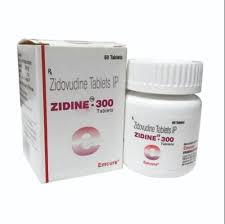Can Zidovudine Help Reduce Immune Deficiency Symptoms?

Can Zidovudine Help Reduce Immune Deficiency Symptoms?
Zidovudine is an important antiretroviral drug widely used in the treatment of human immunodeficiency virus (HIV) infection. The main function of this drug is to inhibit viral replication, thereby helping patients to enhance immune function and reduce immune deficiency symptoms. This article will explore the mechanism of action, therapeutic effects, safety, and clinical significance of Zidovudine.
1. Mechanism of Action of Zidovudine
Zidovudine is a nucleoside reverse transcriptase inhibitor that interferes with the process of transcribing viral RNA into DNA, thereby preventing viral replication within the body. Its active ingredients can bind to the viral reverse transcriptase, preventing the virus from completing its life cycle and thus reducing the viral load in the body. As viral replication decreases, the patient's immune system can gradually recover and reduce immune deficiency symptoms.
2. Antiviral Efficacy
Studies have shown that Zidovudine demonstrates good antiviral efficacy in the treatment of HIV infection. Patients who use Zidovudine long-term can usually maintain a relatively low viral load, and the number of immune cells (such as CD4+ T cells) gradually increases. The increase in these immune cells reflects an improvement in the patient's immune function and helps reduce the risk of opportunistic infections.
3. Safety and Side Effects
Although Zidovudine is generally considered safe, some side effects may occur during use, such as nausea, fatigue, anemia, and effects on the liver. Therefore, when using Zidovudine, doctors need to closely monitor the patient's physical response and adjust the treatment plan according to the specific situation to ensure the patient's safety and health.
4. Clinical Significance
Zidovudine is not only one of the first-line drugs for HIV treatment but also an important means for the global response to the AIDS epidemic due to its effectiveness in reducing immune deficiency symptoms. The use of Zidovudine has enabled many patients to effectively control their condition, improve their quality of life, and thus bring a positive impact on public health.
Q&A Cases
Case 1: What are the common side effects of Zidovudine?
Q: I am considering using Zidovudine for HIV treatment. What are its common side effects?
A: Common side effects of Zidovudine include nausea, vomiting, anorexia, abdominal pain, headache, rash, low fever, myalgia, paresthesia, insomnia, malaise, weakness, and dyspepsia. Among them, nausea is the most common adverse reaction. Doctors will adjust the treatment plan according to your specific situation to reduce the occurrence of adverse reactions. If needed, you can consult DXY customer service.
Case 2: How effective is Zidovudine when used in combination with other drugs?
Q: How effective is Zidovudine when used in combination with other drugs?
A: Zidovudine is often used in combination with other antiretroviral drugs to form a highly active antiretroviral therapy (HAART) regimen, which maximizes the inhibition of viral replication and protects the patient's immune function. This combination therapy can more effectively control the viral load and reduce the development of drug resistance.
Conclusion
Zidovudine has a significant effect on reducing immune deficiency symptoms in patients with HIV infection. Rational use and individualized management of patients remain the keys to ensuring its efficacy and safety. In future clinical practice, combining it with other antiretroviral drugs for comprehensive treatment will further enhance the immune function and quality of life of people living with HIV.

